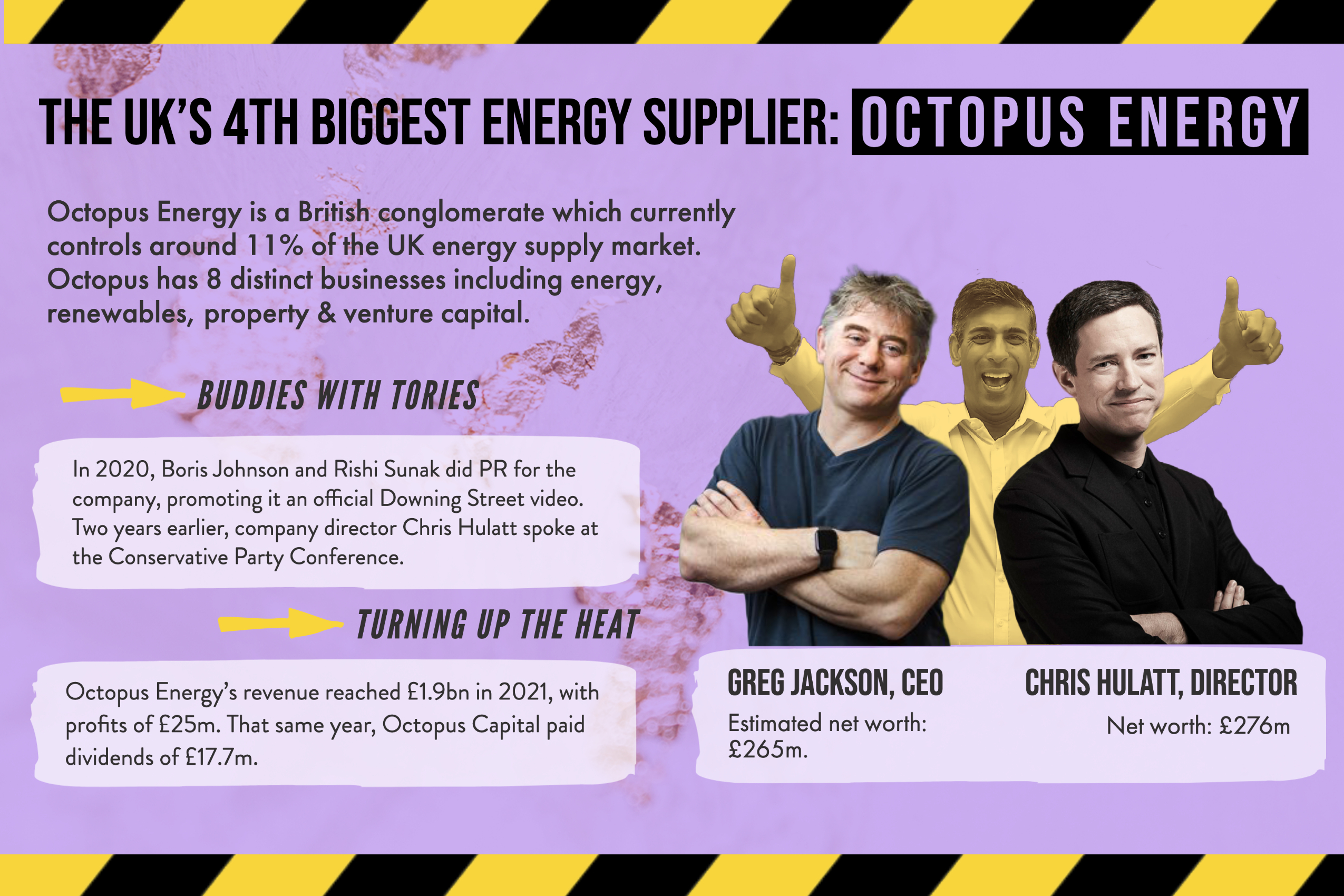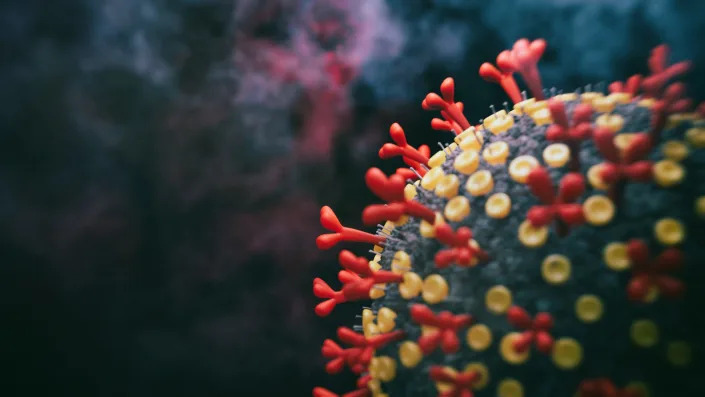
Eleanor Pringle
Fri, January 6, 2023
COVID hospitalizations in the U.S. have spiked 16.1% in the past week as a new "escaped" variant of the virus has continued to sweep across the country.
XBB.1.5— dubbed 'Kraken' by Canadian biology professor Dr. Ryan Gregory and his following in the Twitterverse—is the most transmissible COVID variant yet, according to the World Health Organization.
A risk assessment is currently being drawn up for the new mutant strain by WHO's technical advisory group on virus evolution, Maria Van Kerkhove, technical lead for COVID-19 response at the authority, said on Wednesday.
XBB.1.5 began alarming scientists at the tail end of last year after the number of Kraken cases in the U.S. rose from 1% of all cases at the start of December to 41% just three weeks later.
This week, the U.S. Centers for Disease Control and Prevention projected that it comprised around 75% of infections in regions 1 and 2, which include Connecticut, Maine, Massachusetts, New Hampshire, Rhode Island, Vermont, New York, New Jersey, Puerto Rico, and the U.S. Virgin Islands.
The strain is believed to be in at least 28 other countries—including Europe—with cases of XBB.1.5 now thought to make up 4% of COVID cases in the U.K.
What are the symptoms of 'Kraken' COVID variant XBB.1.5?
Dr. Allison Arwady, the Chicago Department of Public Health commissioner, said in a press conference on Tuesday that Kraken "basically just a combination of two of the earlier subtypes, two variants" from the Omicron strain.
She added that although XBB.1.5 is a new mutation its symptoms have not hugely changed because it is a descendant of the variant that was discovered in mid-2020.
Arwady explained: “We're seeing more people actually just have cold-like symptoms”—such as a runny nose, sore throat, cough and congestion—“but are less likely to have those flu-like, really feeling very sick [symptoms such as] the high fevers."
This is especially the case in people who are fully up to date on vaccines or who have preexisting immunity built up from having a COVID infection in the past.
More widely, the CDC's COVID symptoms to look out for are fever or chills, difficulty breathing, fatigue, body aches and headaches, loss in taste or smell, nausea, and diarrhea.
WHO researchers are currently focusing on the variant’s ability to quickly spread and overtake other strains of Omicron, but Van Kerkhove added that disease severity was also being explored.
There is not yet any evidence to suggest that Kraken prompts a more severe reaction, she said.
XBB.1.5 is causing concern as it binds tightly to the cells it infects, WHO officials added, which means the virus replicates easily in a host.
Does being vaccinated help protect against 'Kraken' COVID?
Dr. Raj Rajnarayanan, assistant dean of research and associate professor at the New York Institute of Technology campus in Jonesboro, Ark., previously told Fortune that the best form of protection from mutations is to get a booster vaccination.
Speaking following the Omicron spawn BA.2.75, dubbed Centaurus, Rajnarayanan confirmed that escaped mutations such as Centaurus and Kraken are "immune evasive" to some extent—but won't be able to defy all of the human body's resistance.
https://twitter.com/mvankerkhove/status/1570752012660412416
Professor Paul Hunter, of the U.K.-based National Institute for Health Research Health Protection Research Unit, added that the extent to which Kraken can bypass immunization is not yet known.
Pavitra Roychoudhury, the director of COVID-19 Next Generation Sequencing at the University of Washington, told Forbes there are no "spectacular" measures members of the public should be taking bar the bivalent vaccine, which Roychoudhury described as the “best defense against severe illness”.
What has the impact been on health services?
The seven-day average to January 3 of COVID hospitalizations has increased 16.1% compared to the prior weekly rolling average, according to data from the CDC.
From Dec. 21 to 27, 2022, 5,613 people were admitted with positive COVID tests, compared to 6,519 from Dec. 28 to Jan. 3.
However this is still a far cry, down 69.7%, from the peak seven-day average in mid-January 2022 when 21,525 were admitted with COVID.
The WHO also reported a 20% increase in global COVID deaths Thursday over the past month; however, Van Kerkhove was quick to confirm that the trend—or variant—behind the deaths is unknown.
She added it could be due to more people meeting indoors around the public holidays as opposed to threats from a new and more dangerous strain.
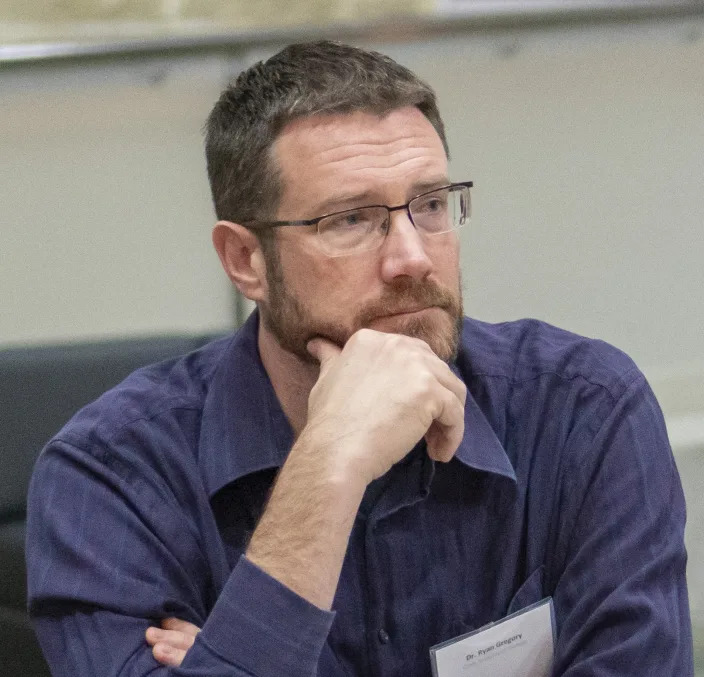
Erin Prater
Thu, January 5, 2023
Everyone knows the names of the major COVID variants Alpha, Delta, and Omicron. But last year, viral evolution shifted, muddying the waters as well as the names of the major variants. Instead of spawning new variants, COVID began evolving within Omicron itself—at a breakneck pace, no less. The organization responsible for figuring out what to call the latest variants of concern—the World Health Organization—stopped using Greek letters after Omicron, arguing that all the new variants weren’t different enough to warrant nicknames.
Do you remember the previously ubiquitous COVID strains BA.4, BA.5, or BQ.1.1? Have you heard of the currently surging XBB.1.5, and do you understand what the tangle of letters and numbers mean? You probably don't—and some experts say it's because of the names. You could be forgiven for thinking another strain of Omicron poses no new threat—especially if you’ve already had Omicron or received the new Omicron booster.
New strains of Omicron are becoming increasingly more transmissible and evasive, with the ability to dodge immunity from prior vaccination and infection. And using the term “Omicron” or something like XBB.1.5 to describe them just isn’t cutting it anymore, Dr. Ryan Gregory, a biology professor at the University of Guelph in Ontario, Canada, told Fortune.
“Kraken” is what he calls XBB.1.5, which the WHO just declared the most transmissible Omicron variant yet. For months, Gregory has worked to offer up “street names” for complicated COVID strains, in a bid to better communicate the evolving Omicron threat to the public.
And as pseudonyms go, he’s got a lot more where the kraken came from.
With input from both professional and “citizen” scientists around the globe, Gregory has compiled a list of memorable monikers from Greek mythology and other realms— Chiron, Argus, Basilisk, and Typhon—for the Omicron spawn that medical experts believe pose the greatest threats in the near future. He told Fortune he was inspired by a Twitter user who dubbed the Omicron strain BA.2.75 “Centaurus” this summer, and saw the media and some experts pick that up.
Since Gregory began using "Kraken"—an aggressive sea monster from Scandinavian folklore—shortly after Christmas, it's quickly gained steam, as reported by Bloomberg. The term has been picked up by a host of other international and national news outlets including Insider and Sky [hotlink ignore="true"]News. Centaurus was named in journal articles and used by the likes of Nature and the Guardian. And some variant trackers are now using the proposed names as hashtags on Twitter.
Gregory likened Omicron and its variants to different species within the mammal family of vertebrates.
“If you said, ‘Oh, what’s that thing in my yard?’ and I said, ‘It’s a mammal,’ you’d say, ‘Is it something that will eat me? Will it steal my vegetables? Does it carry disease? Is it somebody’s pet?'” he explained.
"Omicron" remains a useful descriptor, he maintained. But more than a year after the highly transmissible Omicron strain burst onto the global scene, someone needs to name new, concerning variants.
If the WHO won’t, he's decided, he will.
Gone are the days of Greek letters?
When COVID variants began materializing, the WHO devised the strategy of naming them after Greek letters, skipping some that might be confusing—like Nu, which sounds like “new,” which would apply to all variants at some point—or offensive to some, like Xi, the first name of China’s president.
Generally, the approach worked, Gregory said. But Omicron muddled matters.
Dr. Raj Rajnarayanan, assistant dean of research and associate professor at the New York Institute of Technology campus in Jonesboro, Ark., is on Gregory’s informal team to develop nicknames for particularly troublesome Omicron spin-offs.
Even as a seasoned scientist and professor, Rajnarayanan said he’s found it difficult to effectively communicate with nonscientists regarding the tangled mess of variants scientists are monitoring.
“When you keep calling 200 different lineages of different potential the same name, it becomes a problem,” he recently told Fortune.
Experts like Gregory and Rajnarayanan worry that a lack of a new and specific names for Omicron variants could lead members of the public to draw false conclusions—like that the virus isn’t evolving, or that a months-ago infection with Omicron will confer protection against newer strains of Omicron, which isn’t necessarily true.
‘The public can’t keep these numbers straight’
So far, the WHO has declined to give particularly concerning Omicron variants a Greek letter. Fortune reached out to the international health organization to ask why and didn’t receive a response.
Its resistance is based in science, since new Omicron variants can be traced back to older Omicron variants. But it’s not practical, Dr. Eric Topol, a professor of molecular medicine at Scripps Research and founder and director of the Scripps Research Translational Institute, told Fortune last fall.
“And it’s not a good defense for not naming them,” he added. “I would implore them to do so. The public can’t keep these numbers straight.”
Topol says he would have called BA.5, dominant globally until recently, Pi or Sigma because it’s “so distinct” from the original Omicron, BA.1, as well as the so-called stealth Omicron, or BA.2.
Two particularly worrying recent variants—BQ.1.1 and XBB—should also be assigned Greek letters because researchers have called them “extreme in terms of immune-evasiveness and resistance to monoclonal antibodies,” he said at the time.
“They could be given new Greek letter names instead of the ones some people invent,” he said of the new strains. “If different people are going to make up names, it’s going to be just as confusing as the numbers or letters.”
Basilisk here, Hydra there
When describing potentially threatening variants, the WHO currently uses so-called Pango lineages—combinations of letters and numbers you’ve likely heard of, like BA.2.75.2 and BA.4.6.
Pango labels have maintained their specificity as the virus mutates unrestrained, Gregory said. But such labels are almost too precise for the general public. And aside from being forgettable, they’re easily confused.
“When I talk to people, I say BA.1, they think I’m saying BL.1—and that’s a different variant,” Rajnarayanan said. “Even the two-letter system causes confusion.”
Gregory equates Pango names to technical species names, like Mus musculus for mouse or Rattus norvegicus for rat. Such technical names aren’t often used by the general public. Some species of animals, however—like Oncorhynchus mykiss, or rainbow trout—get a common name because “we encounter them a lot, they’re important to us, they’re dangerous or useful or delicious or whatever,” he said.
And so it should be with COVID variants, he contends. Particularly rampant, “high-flying” variants like XBB, a blend of BJ.1 and BM.1.1.1, should get a nickname—Gryphon, per his system—for ease of communicating the threat to the general public.
It’s especially important, he says, as a menagerie of Omicron spawn spike in different locations around the world in a fashion unlike any seen in the pandemic so far.
“If we want to make it clear that what’s rising in the U.K. is not the same as what’s rising in the U.S.—the ‘alphabet soup’ is going to be very difficult for that,” he said. He's convinced that if his system was adopted, with, say Basilisk and Cerberus in the U.K., and Hydra and Aeterna in the U.S., "you can immediately recognize which names are the same and which are not.”
If COVID keeps spawning new mutations, there are other lists of names to tap—planets, stars, constellations, galaxies, Gregory said.
What in the world will he think of next?
This story was originally featured on Fortune.com


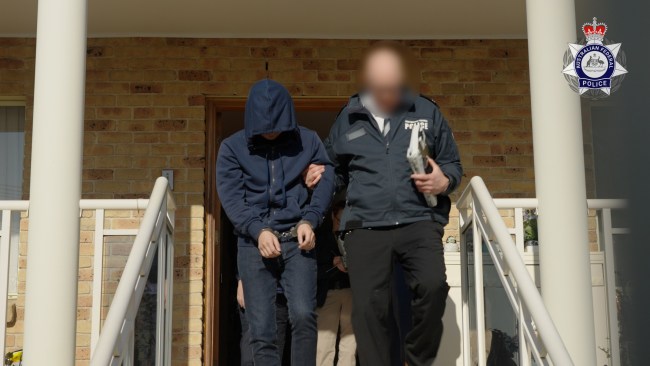






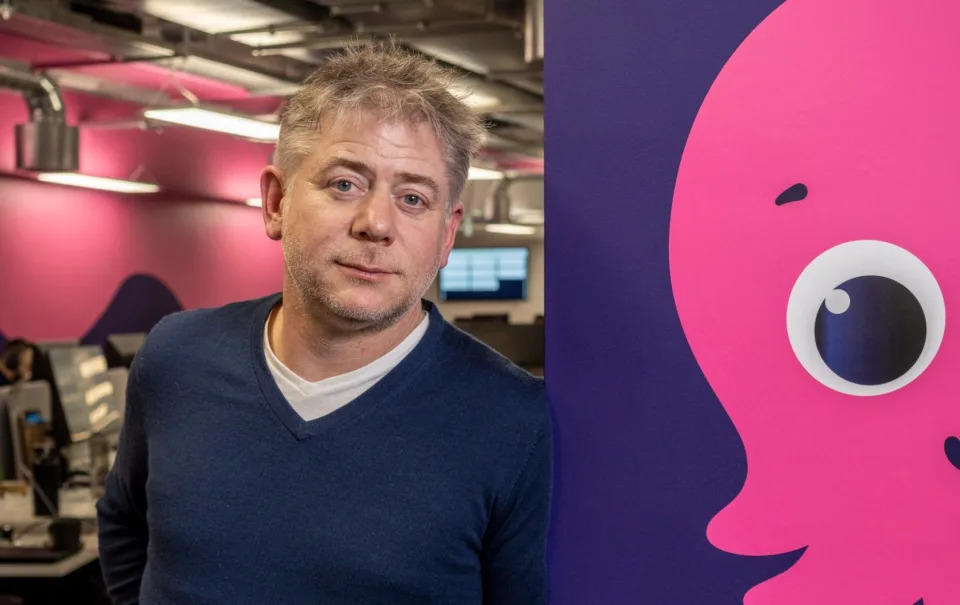
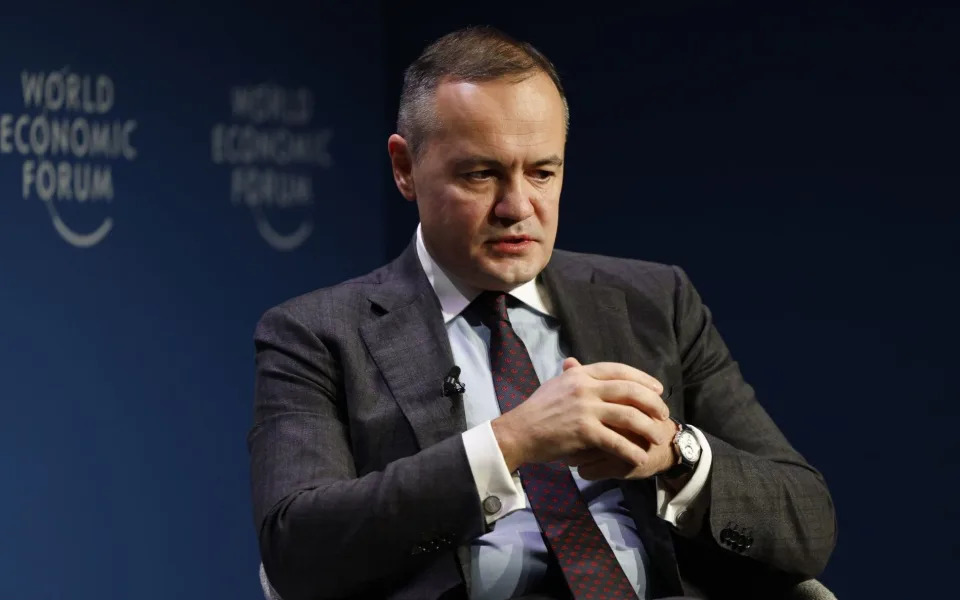
 Image description: A remote-controlled light switch is operated on by a nearby smartphone.
Image description: A remote-controlled light switch is operated on by a nearby smartphone.